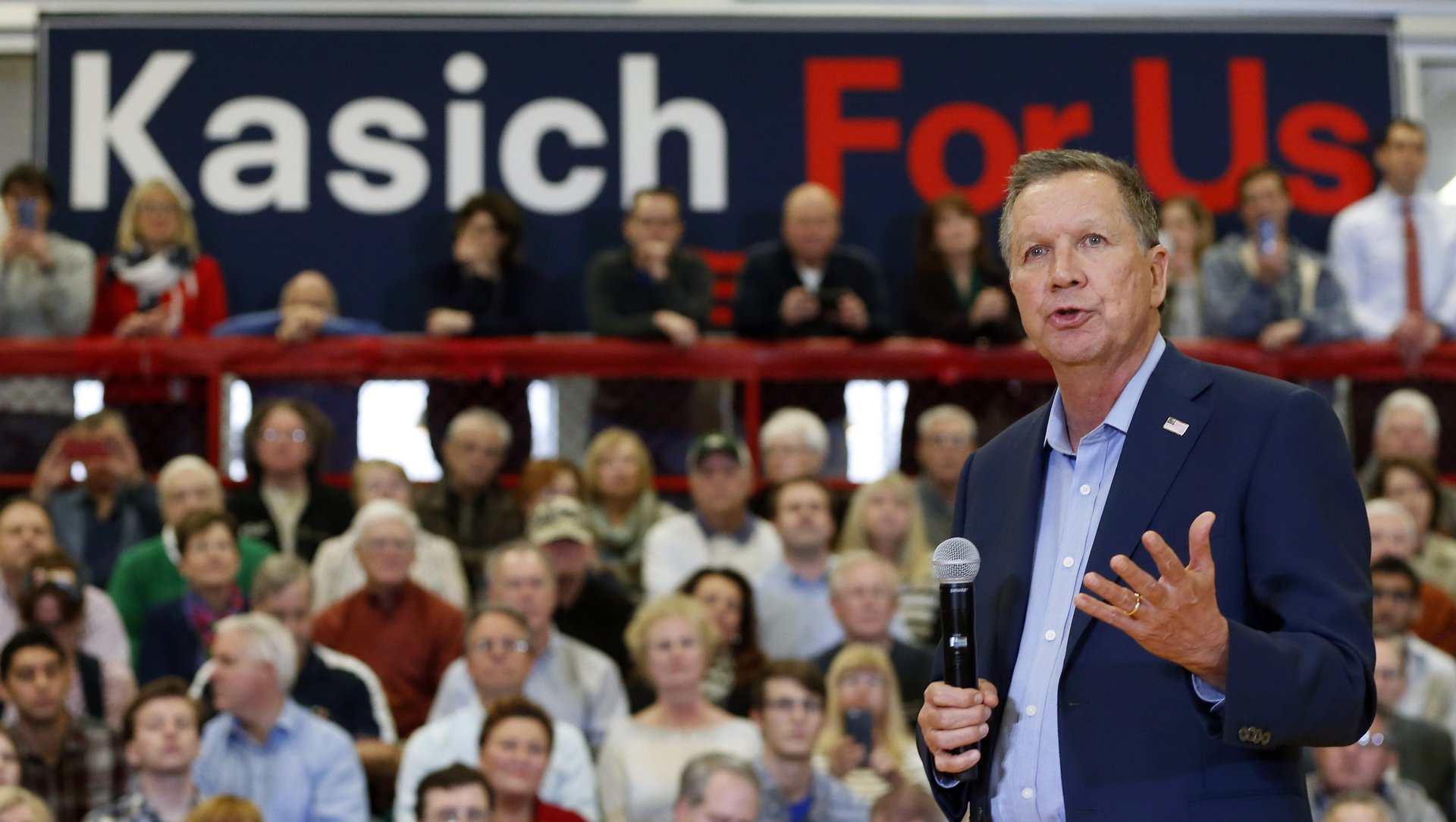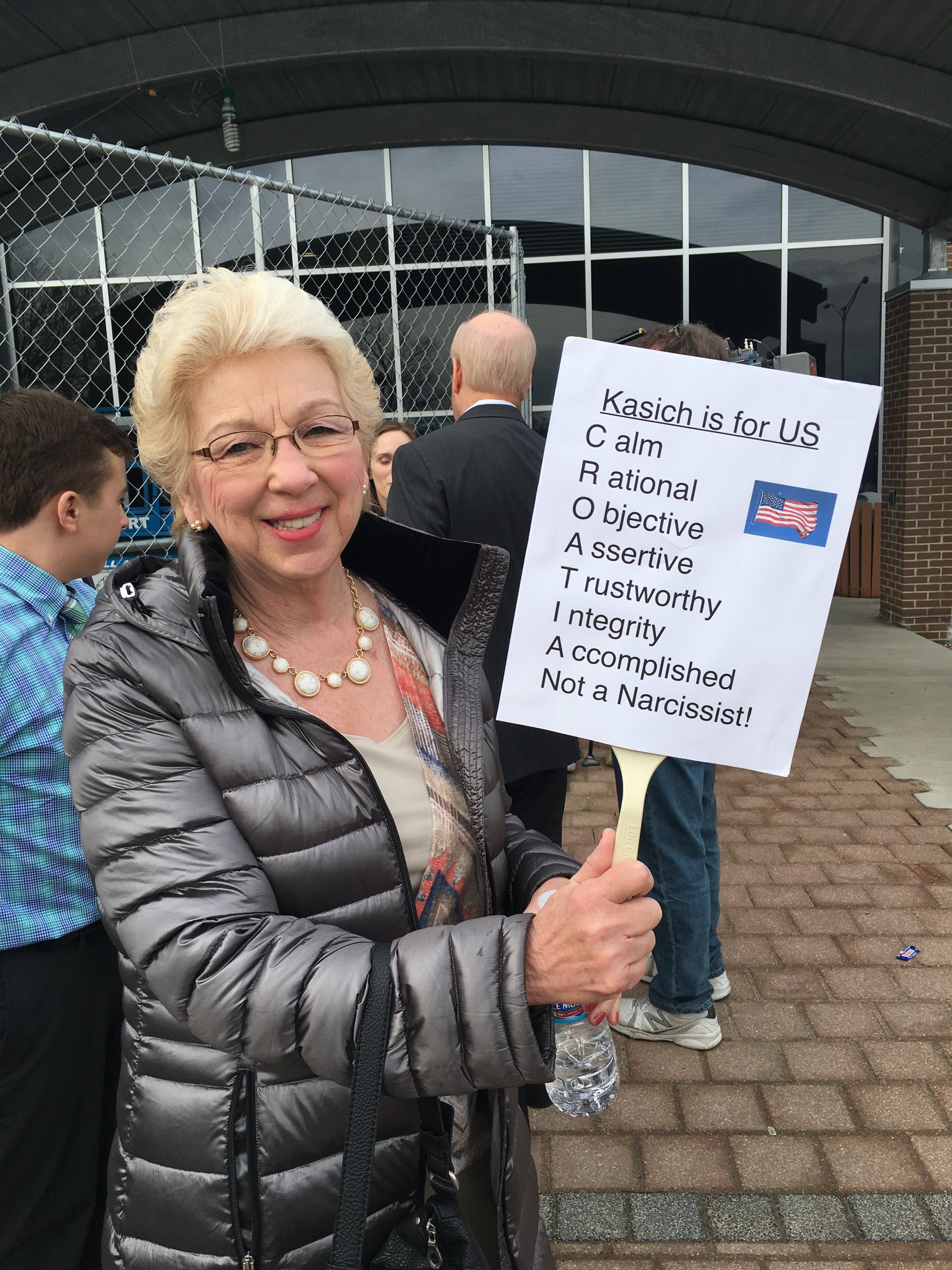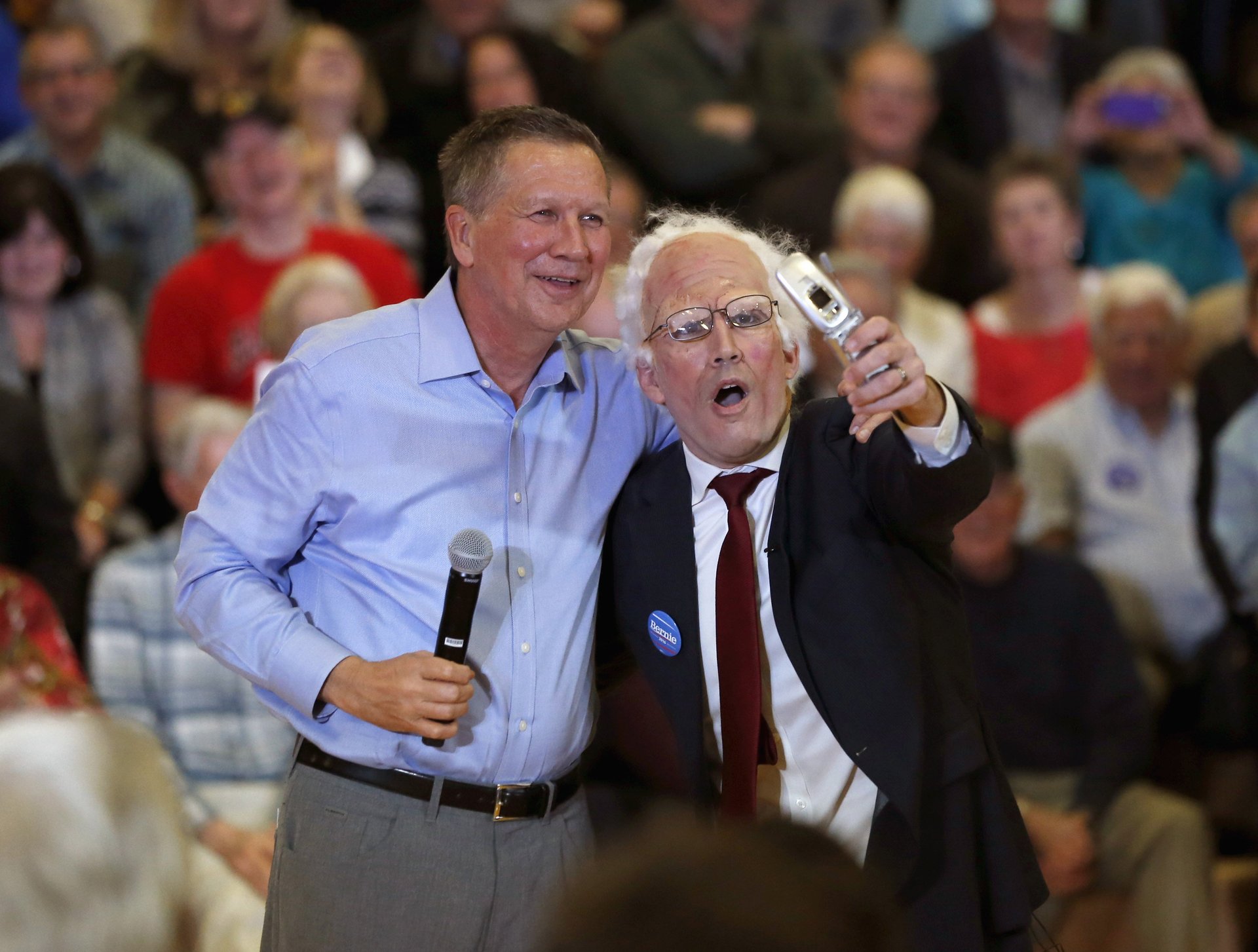Who are the people determined to vote for John Kasich?
PALATINE, ILLINOIS


PALATINE, ILLINOIS
Ohio governor John Kasich says he refuses to “get down in the mud to get elected president.” For Illinois voters, that is his greatest appeal, which earned him a standing ovation at at a town hall meeting with Kasich in the Chicago suburb of Palatine.

“He has a positive campaign, a positive message,” said Mike Singer, a 54-year-old unemployed former ad salesman from Ravenswood, Illinois. “He is the only one who can unite us. I’m tired of partisan politics.” Singer’s sentiment was echoed by the Republicans, Democrats, independents and undecided voters of all ages at a well-attended event on March 9, less than a week before the state’s primary.
In a primary season dominated by voter rage and Donald Trump, Kasich’s supporters aren’t delusional about his chances. But they are hoping for a brokered Republican convention where he could still have a shot (no matter how long) at the nomination.
Kasich is currently in fourth place in the delegate count, but he is coming off of a third-place finish in Michigan. His judgement day will be the contest in the winner-take-all state of Ohio on March 15—a must-win if he wants to stay in the race. Polls differ on whether Kasich or Trump are in the lead.

The word “compassionate” came up frequently as a way to describe Kasich, and he was called “the only adult in the room” by both a 70 year-old retired female executive assistant and a 20-year-old male college student. Nancy, a retired teacher who did not want to give her last name, complained about the vulgarity of the race:”What is America coming to? We could be watching Jerry Springer or Maury Povich!”
Justin Sia, 20, is on spring break from Emory University, where he studies political science. He admires Kasich’s experience, and ability to compromise. The “perfect example” of this for him? Kasich’s accepting position on gay marriage, an important issue for Sia. He cast his ballot—his first ever—for Kasich under Illinois’ early voting provision.
Ron and Jan Ogle, both 70, have been fans of Kasich for some time, but the town hall solidified their support. “Our nation is broken, and we need someone who can bring the country together,” said Jan Ogle.
Kasich’s strength with these voters appeared to draw from an ability to combine his working class background, “man of the people” image, with his moderate politics, and moderate language. ”All I try to do is make things a little bit better for you,” he told the audience. ”Before we are Democrats and Republicans we are Americans.”
Blake Kolesa, an independent, is a 19-year-old student at Northwestern University. Kasich’s blue collar roots have a very personal appeal for him. The candidate likes to underline that his grandfather was a coal miner who died of black lung disease–just like Kolesa’s.
“He gets our struggle,” said Mike Singer, who also comes from a working class background.
The audience was peppered with undecided voters, some deciding between Kasich and Trump, some adding Cruz to the mix, and at least one choosing between two underdogs.
Dan Krohm, 39 is a full-time dad. He came to the debate with his toddler son, Teddy, whom he carried on his shoulders, and who interrupted his dad by sticking his hand in his mouth from time to time. He is deciding between Kasich and Democrat Bernie Sanders. Both appeal to him for their authenticity—Kasich as a moderate who can balance budgets, and Sanders as someone who “shows concern for everybody.”